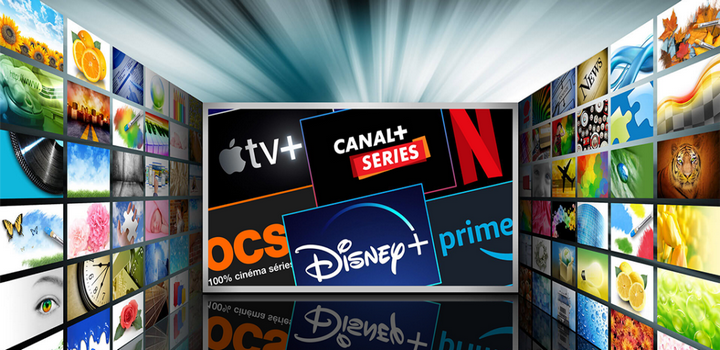In recent years, the way we consume television has undergone a seismic shift, largely due to advancements in technology and the rise of the internet. One of the most significant developments in this realm is Internet Protocol Television (iptv nederland), a system that is transforming the landscape of broadcasting and content delivery. This article delves into what IPTV is, how it works, its advantages and disadvantages, and its impact on the future of television.
What is IPTV?
IPTV stands for Internet Protocol Television, a technology that allows television services to be delivered over the Internet rather than through traditional terrestrial, satellite, or cable formats. Unlike conventional broadcasting, which transmits video signals through airwaves or cables, IPTV utilizes the Internet Protocol (IP) to send video data in packets. This enables viewers to access a variety of channels and on-demand content via their internet connection.
How IPTV Works
IPTV operates on a simple principle: it uses a broadband internet connection to transmit television signals. Here’s a breakdown of how it works:
- Content Acquisition: IPTV providers acquire content from various sources, including television networks, production studios, and user-generated content platforms.
- Encoding and Compression: The acquired content is then encoded and compressed to optimize it for delivery over the internet. This process involves converting the video and audio signals into a digital format suitable for streaming.
- Content Delivery: The compressed content is delivered to viewers using internet protocols. Unlike traditional broadcasting, where signals are sent in one direction (from the provider to the viewer), IPTV allows for two-way communication. This enables features like video on demand (VOD), time-shifting, and interactive content.
- Playback: Users can access IPTV content through various devices such as smart TVs, computers, smartphones, and dedicated IPTV set-top boxes. Once the content is selected, the viewer can watch it on their chosen device.
Advantages of IPTV
- Flexibility and Convenience: IPTV allows viewers to watch their favorite shows and movies at their convenience, without being tied to a specific broadcast schedule. This flexibility caters to modern viewing habits, where audiences prefer on-demand content.
- Interactive Features: IPTV services often come with a range of interactive features, including catch-up TV, pause and rewind options, and user-generated playlists. Viewers can tailor their viewing experience to suit their preferences.
- Wide Range of Content: IPTV offers a vast array of channels and content, including international channels, niche programming, and user-generated content. This diversity caters to various tastes and interests.
- Higher Quality Streaming: With the ability to deliver high-definition (HD) and even ultra-high-definition (UHD) content, IPTV provides an enhanced viewing experience compared to traditional television methods.
- Cost-Effectiveness: Many IPTV services offer competitive pricing compared to traditional cable and satellite subscriptions. Some even provide bundles that include internet and phone services, further reducing costs.
Disadvantages of IPTV
- Dependence on Internet Connectivity: IPTV requires a stable and high-speed internet connection. Viewers in areas with limited or unreliable internet access may experience buffering or service interruptions.
- Potential for Latency: Live streaming through IPTV can sometimes lead to latency issues, resulting in delays between the actual broadcast and what viewers see. This can be particularly problematic for live sports events.
- Content Licensing and Availability: Not all content may be available through IPTV due to licensing restrictions. This limitation can lead to frustrations for users looking for specific shows or channels.
- Security and Privacy Concerns: With the rise of IPTV, there have been concerns regarding the legality of certain IPTV services, especially those offering pirated content. Additionally, the transmission of data over the internet raises questions about privacy and security.
The Future of IPTV
As technology continues to evolve, IPTV is poised to play a crucial role in the future of television. The growing popularity of streaming services like Netflix, Hulu, and Amazon Prime Video demonstrates the shift in consumer preferences toward on-demand content. IPTV combines the benefits of traditional television with the convenience of streaming, offering a compelling alternative for viewers.
Moreover, with the advent of 5G technology, the potential for IPTV is set to expand even further. Faster internet speeds and improved connectivity will enhance the quality and reliability of IPTV services, making it a more attractive option for consumers.
Conclusion
IPTV is redefining how we consume television, offering flexibility, interactivity, and a diverse range of content. While it does come with certain drawbacks, its advantages make it an appealing choice for modern audiences. As technology continues to advance, IPTV will likely become an integral part of our viewing experience, paving the way for a new era in television consumption. Whether you’re a casual viewer or a dedicated binge-watcher, IPTV offers something for everyone, promising to keep you entertained in an ever-evolving media landscape.




